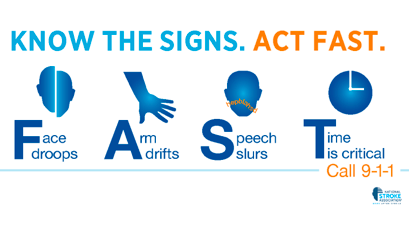Ministry: Taking unregistered health supplements one of contributing factor
PETALING JAYA: Almost 9,000 new kidney patients are registered annually, and they require dialysis treatment, says the Health Ministry.
The prevalence of chronic kidney disease (CKD) in Malaysia has been on the rise, it said.
“In Malaysia, one in seven of the 33 million population, or 4.7 million adults, have various stages of CKD.
“Preliminary data from the National Renal Registry (NRR) shows that there were 49,447 dialysis patients in Malaysia last year.
Of this number, 43,663 patients are undergoing hemodialysis treatment, while 5,784 go for peritoneal dialysis treatment,” the ministry said in a statement to The Star.
Overall, the prevalence of CKD had gone up from 9.07% in 2011 to 15.48% in 2018.
The ministry said that the consumption of unregistered health supplement products was among the factors contributing to kidney disease.
“From January 2018 until December 2022, the National Pharmaceutical Regulatory Agency (NPRA) received 67 reports of adverse events associated with renal functions suspected to be due to the consumption of health supplements.
“Of these, 14 were suspected to be due to the use of unregistered health supplements.
“The most frequently reported adverse events were acute kidney injury (six), increased blood creatinine (three) and acute chronic renal failure (two),” it said.
NPRA is responsible for monitoring the safety of registered products on the market, including health supplements.
“One of the key activities in monitoring the safety of the products is through adverse drug reaction (ADR) reporting by healthcare providers, pharmaceutical companies and consumers.
“The NPRA also receives ADR reports suspected to be due to the use of unregistered health supplement products, including those adulterated with illegal substances such as dexamethasone, chlorpheniramine, and sibutramine,” the ministry said.
From 2020 until March this year, the ministry confiscated 30,209 slimming products sold online, valued at almost RM1.27mil.
Through various efforts, the ministry has also been regulating and monitoring the sales of unregulated supplements on social media.
This includes ensuring pharmaceutical products, health supplements and traditional medicines are registered with the Drug Control Authority in accordance with the Control of Drugs and Cosmetics Regulations (CDCR) 1984.
For the purpose of marketing, the ministry said registered traditional medicines are only permitted low-level claims that indicate the purposes of the products.
“All proposed claims must be supported by reliable references.
“Excerpts from pharmacopoeias, monographs, published journals or articles, and data from clinical studies are generally accepted as evidence of use and product indication,” it said.
The ministry is also doing post-marketing surveillance activities, such as constantly monitoring the products that have been registered.
This was to ensure that all registered products that are marketed and supplied are safe and of good quality, it added.
Selling products that are not registered is an offence under Regulation 7 (1) (a) of the Control of Drugs and Cosmetics Regulations 1984.
It is also an offence under Regulation 30 (1) of the same Regulations.
Such an offence can be punished under Section 12 (1) or 12 (2) of the Sale of Drugs Act.
The ministry has been working with other government agencies and the private sector, including emarketplace platform providers, social media platforms and Internet-based service industries within and outside of Malaysia, to combat sales of unregulated products.
“Additionally, the ministry has partnered with other agencies, such as the Malaysian Communications and Multimedia Commission, to help in taking further action on content that breaches laws and regulations,” it said.
Besides this, the ministry has set up a cyberintelligence and forensics team within the Pharmaceutical Enforcement Division to monitor websites, social media and ecommerce platforms throughout Malaysia.
According to the ministry, the team served as a central point for their engagement with Internet platform providers like Facebook, Google and other similar companies.
“From 2020 to March 2023, a total of 1,345 advertisements related to weight loss or slimming products suspected of violating the Medicines (Advertisement and Sale) Act have been screened.
“Out of the total number of screened advertisements, five were found to promote products containing 2,4-Dinitrophenol (DNP),” it added.
DNP, which has been classified as a poison under the Poisons Act, is an organic compound that is usually used in the manufacturing industry as an industrial chemical.
It might also be used as an antiseptic.
The substance has been discovered in certain products that purport to help in weight reduction.
https://www.thestar.com.my/news/nation/2023/05/21/hidden-risks-in-illegal-ingredients-added-to-slimming-pills
QUOTED:
Malaysian Pharmacists Society president Amrahi Buang said the public should be wary of some herbal products sold in the illegal market and promoted as weight loss supplements.
“Some herbal products marketed for weight loss have been found to be adulterated with sibutramine, which is a controlled substance. It was previously used as an active ingredient in some weight loss pills.
“Sibutramine was removed from the market due to safety concerns, as it can significantly increase blood pressure and interact with other medications in life-threatening ways,” he said.
Amrahi said it was important for consumers to buy herbal weight loss products only from regulated producers while also receiving consultations from professionals.
For instance, a certain prescription for weight loss could be effective for some people, but it should still be used only with the guidance of a healthcare professional and taken together with a healthy diet and an exercise regimen, he said.
Malaysian Society of Nephrology president Dr Lily Mushahar said one should avoid taking slimming products with other medications as it could potentially cause organ failure.
“Slimming or weight loss pills can cause serious kidney, liver and organ failure.
“This damage can be reversible after stopping the drug, but sometimes it can cause permanent damage.
“Fat-blocking or herbal slimming drugs may have diuretic effects, causing crystal or stone formation that can irritate the kidneys,” she said.
According to the Health Ministry, the National Pharmaceutical Regulatory Agency (NPRA) has received several reports of adverse drug reactions due to the use of unregistered health supplement products.
Related posts:












